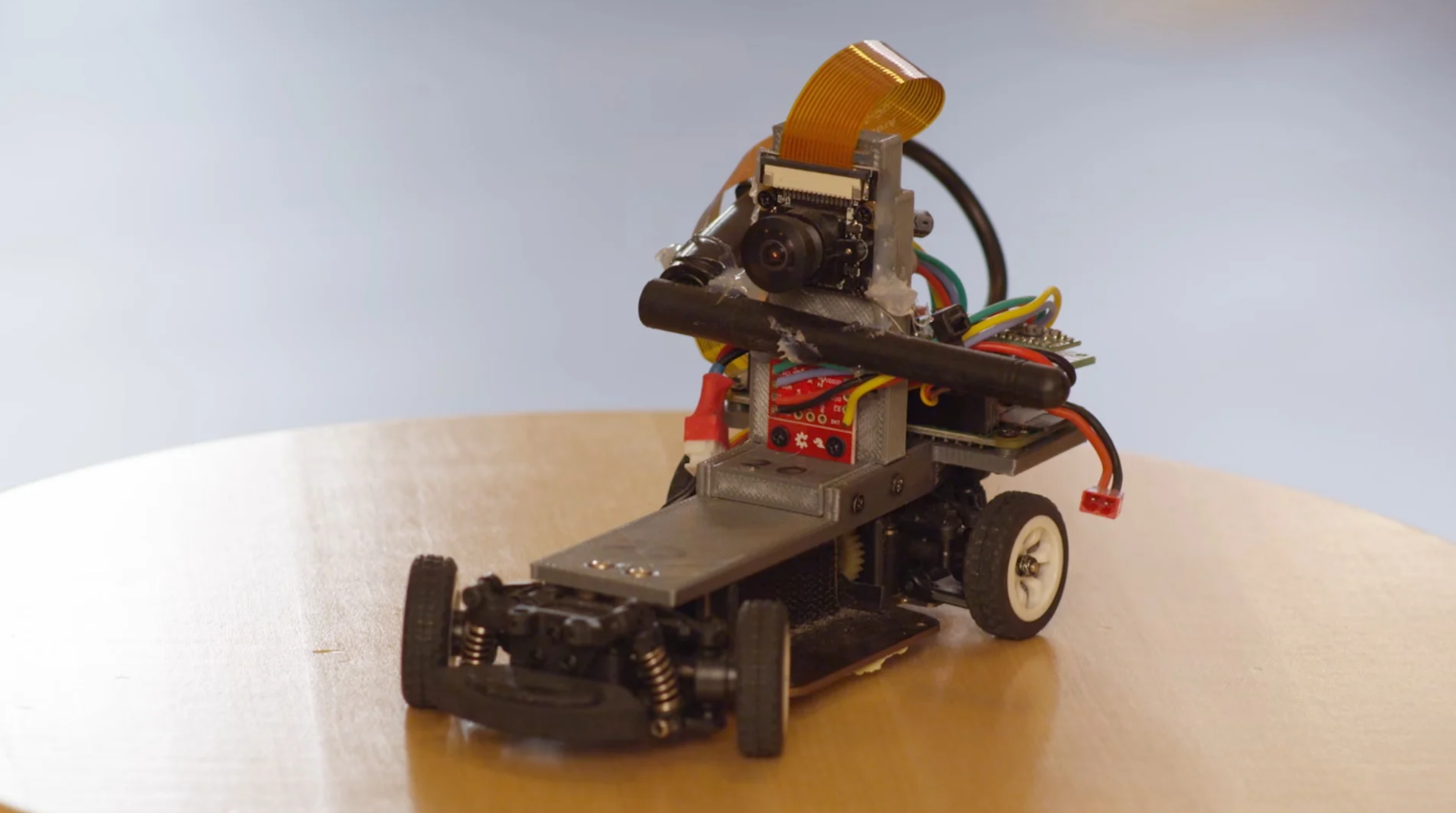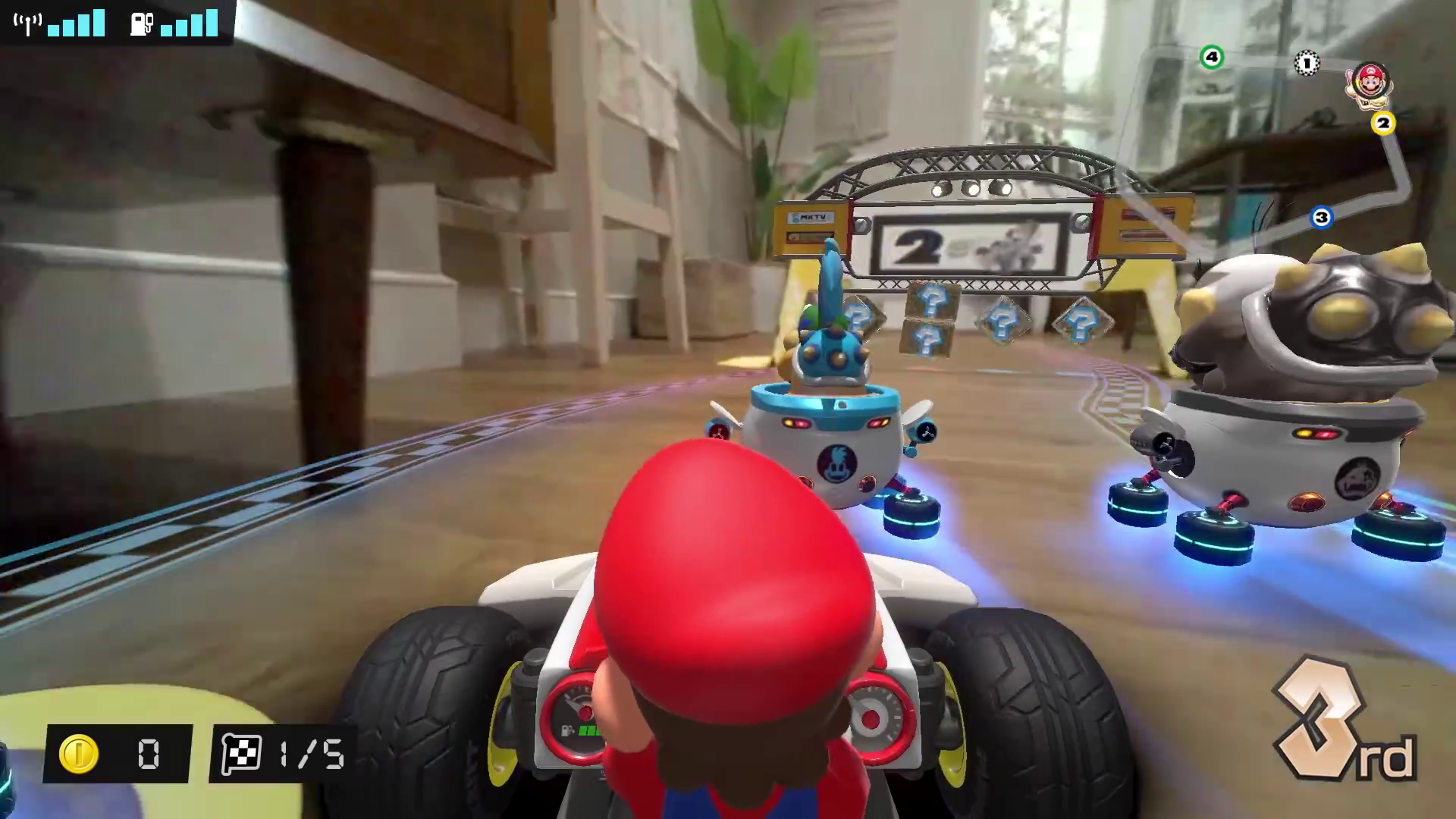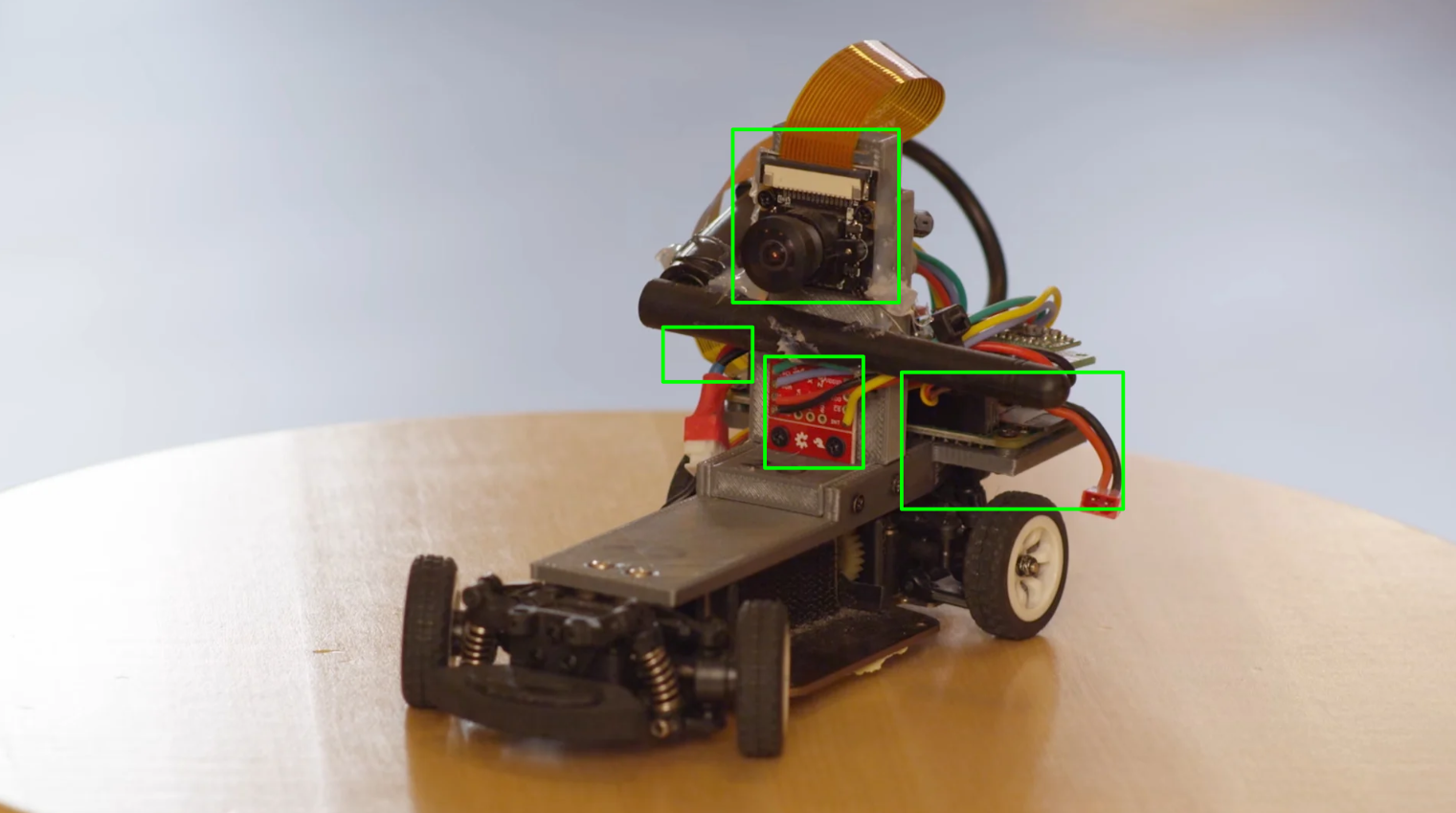Raspberry Pi Zero W Powers Mario Kart Live Prototype
Pi power in your prototype
Nintendo’s new Mario Kart Live: Home Circuit, a game where your home becomes the track thanks to augmented reality and a remote controlled kart, is almost ready for release. The team behind prototyping the unique kart have talked about prototyping the technology used, which anyone can buy, namely the Raspberry Pi Zero W.
As written by Nintendo Life, VELAN was tasked by Nintendo to develop a prototype of the kart used in the game, and they chose the Raspberry Pi Zero W as a testbed. Looking closely at the image, we can see four key areas that identify the components used.
To the right we can see part of the Raspberry Pi Zero W board, with a female header soldered in place and a microSD card inserted. Moving to the top, you see a camera, and following the flat flex cable to the left, you can see the width reducing as it connects to the Raspberry Pi Zero W. The reduction is necessary as the Raspberry Pi Zero range of boards do not use the standard Raspberry Pi Camera flat flex cable. The final clue is the center 'red board,' which appears to be a Sparkfun control board, most likely a motor controller used to control the steering and the two DC motors that power the kart around the track.


An enhancement to the Raspberry Pi Zero W WiFi antenna, needed for greater range, can be found across the top of the kart.
"In these early VELAN prototypes the battery life just didn't last that long, especially when we drove in the 150 or 200cc speed classes, but Nintendo's hardware team was so committed to coming up with this amazing design that really allowed for battery life to last much, much longer," Velan Lead programmer Jan-Erik Steel said. "There is so much technology packed into this car; it is essentially a mini console on wheels"
So why choose a Raspberry Pi Zero W for prototyping? Firstly it is cost effective. Retailing for $20, a Raspberry Pi Zero W can be embedded and forgotten about. The Raspberry Pi ecosystem also has a mature selection of programming languages and support, enabling developers and makers to quickly build and test their products before they go for manufacture.
Get Tom's Hardware's best news and in-depth reviews, straight to your inbox.

Les Pounder is an associate editor at Tom's Hardware. He is a creative technologist and for seven years has created projects to educate and inspire minds both young and old. He has worked with the Raspberry Pi Foundation to write and deliver their teacher training program "Picademy".

